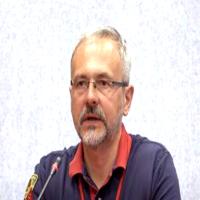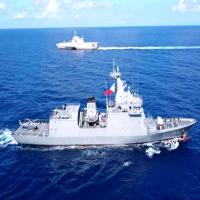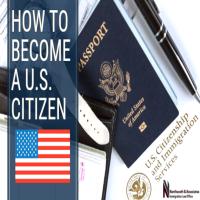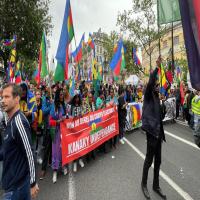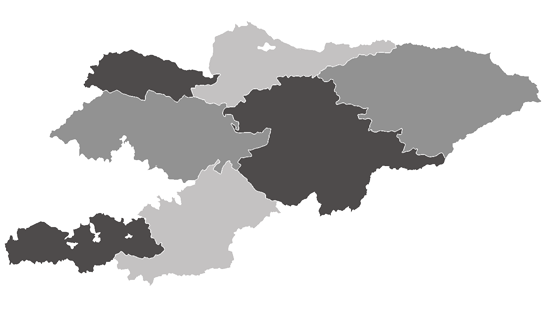This essay is part of a series by American diplomats sharing their impressions of the dramatic early years of Central Asia's independence from the Soviet Union. These memoirs were written at the invitation of the DavisCenter for Russian and Eurasian Studies at HarvardUniversity. We publish these with special thanks to Nargis Kassenova, director of Davis's Program on Central Asia.
Before retiring from the US Foreign Service in 2018, I served consecutively as US Ambassador to Uzbekistan and Kazakhstan. I got to know and interact with these states' first presidents: Islam Karimov and Nursultan Nazarbayev. By the time I arrived in their capitals, both presidents had evolved into singularly powerful leaders, who governed their countries as autocrats with little accountability.
The US government had a troubled relationship with the irascible Karimov, who isolated his country from what he viewed was a hostile, meddling world. He viewed Washington as a fickle and ungrateful ex-partner, bent on seeing him removed from power and held accountable for human rights abuses.
In sharp contrast, the US considered Kazakhstan its key strategic partner in the Central Asian region and paid great respect to Nazarbayev, who charmed American visitors and whose government took great pains to paint Kazakhstan as a progressive, foreign-business friendly state seeking to evolve into a democracy. Nazarbayev also promoted an image of Kazakhstan as a trusted regional power and a serious player on the world stage.
The presidents had developed a rivalry between them and, at least for Karimov, hostile feelings for his Kazakh counterpart, who Karimov felt was a status-seeking political neophyte exploiting his country's unfair oil wealth to buy the good graces and plaudits of the major powers. It was clearly a challenging yet fascinating experience to work with these two leaders as the US Ambassador.
Following my confirmation as ambassador to Uzbekistan, I arrived in Tashkent in 2011, barely a week before our national holiday, the Fourth of July. Fortunately, my predecessor, Dick Norland, had greatly improved relations with President Karimov, and perhaps because the former Uzbek ambassador to the US, and by now foreign minister Abdulaziz Kamilov had given Karimov a favorable report of me as deputy assistant secretary for Central Asia in Washington, Karimov agreed to accept my credentials within days after my arrival. This enabled me to preside as a fully accredited ambassador over our embassy's greatest representational event of the year, our Independence Day official reception, which became my coming out party. Under blue skies and a hot sun, I delivered my first speech in repeatedly practiced Uzbek, which greatly pleased the Uzbeks present and even was broadcast on state TV.
My credentials ceremony with Karimov the day before set the tone for our relationship for the rest of my ambassadorial tour. Although several other new ambassadors, who had waited months for this ceremony, presented their credentials that day, Karimov saved me for last. I did not know if this was good or bad or simply a protocol matter since I was the most recent envoy to arrive in Tashkent. Karimov seemed pleasant enough during the brief ceremony where I simply handed over my credentials to him in an ornate reception room of the Ak Saray, or White House, the official residence of the President of Uzbekistan.
After I had done the deed, Karimov motioned for me to follow him into an adjoining sitting room where he offered me a chair and we sat down. He wanted to talk. And he did, long and seriously. In Russian. He described in pungent detail the history of his tortuous relationship with US presidents, secretaries of state, previous ambassadors, senators, and other American notables, stressing how he had fulfilled his commitments to us while we had broken ours to him. Although tea had been poured, we never touched it, nor the many plates of dried fruits, nuts and pastries that graced the elaborately carved coffee table in front of us.
After about an hour, Karimov paused. My turn. Throughout his monologue, while I was trying to remember what he said, I also kept reciting in my head the little speech in Uzbek I had memorized just for this occasion. Now was my chance. I began with an Uzbek honorific, which my Uzbek language instructors had assured me was the most appropriate and elegant way to address the head of state. The English translation was something like "Your most noble and excellent excellency." As soon as I uttered the phrase, Karimov suddenly waved his hand and stopped me. What had I done?!! Looking at me intently, he said: "Your Uzbek is very good, but never address me this way again. Save this type of fancy greeting for the likes of the Tajik (President) Rahmon. He loves this sort of ornate address. I am a modest man. You can address me simply as Mr. President." He then smiled: "But I like that you speak Uzbek. Keep it up. Travel around. Tell me what you see and hear if you like. I can see already you will do well here."
Ice broken.
After concluding my little speech, we had another hour of largely one-sided conversation during which I heard more acerbic comments about Uzbekistan's neighbors, jokes, and admonishments. And then Karimov stood up and walked me to the door, something I understood later he rarely did for other guests. Not a bad beginning of our relationship.
For an ambassador, being on the good side of the head of state to whom you are personally accredited, whether you like the person or not, is not a bad thing. In fact, it is essential for doing the diplomat's work of trying to persuade that person to agree to do something one's government would like them to do. And it is especially relevant when that head of state is an autocrat, who governs the country singularly and with an iron fist.
I knew human rights advocates thought that I, as US Ambassador, should privately and publicly condemn Karimov for Uzbekistan's poor human rights record. But, frankly, I had never seen such an approach bear any fruit. If anything, I had witnessed such actions, while pleasing the human rights community, nevertheless end an ambassador's effectiveness as a diplomat, cutting him or her off from access to the leadership, the government and even the society of the host country. Perhaps most importantly, the human rights situation could worsen as authorities sought to teach the errant envoy and the human rights community a bitter lesson.
I did not harbor high hopes of persuading Karimov to change his stripes and the way he governed, but by showing him respect and a certain amount of understanding and humor, rather than self-righteousness, I was able to soften his edges. This approach gave me and some of Karimov's more courageous ministers enough cover to work step by step to resolve some knotty issues, including human rights problems, largely because the boss respected me. I would call it practicing the subtle art of persuasion, i.e. diplomacy, my profession.
I also took up Karimov's advice for me to travel and report back to him. I tried to spend more time out of the embassy and Tashkent visiting the provinces. Naturally, I had the obligatory dog and pony official meetings with nervous local officials, but what I found most useful was just walking around, visiting markets, dropping in stores, listening to people and speaking with them. Fortunately, my "friendly" relationship with Karimov and his own injunction to get out and see Uzbekistan, ended some of the more ridiculous restrictions my predecessors had to endure while traveling the country. Their official handlers would insist they stick to the official schedule the government had developed for a visit, which usually meant not seeing anyone other than people the government wanted you to see.
In contrast, I found I could speak with anyone I wanted and go anywhere I wanted. If my local protocol "minder" objected, I always said I was simply fulfilling the president's personal instruction to me, including reporting back to him on my impressions and treatment. And that was that. The official would back off rather than get himself in trouble with Tashkent. And at the end of every year, I sent Karimov an "annual report" - a diplomatically worded letter describing what I found in Uzbekistan, the good and the problematic. I heard he appreciated these letters. Again, they bolstered my rapport with him which I could then use to advance incrementally my diplomatic agenda.
I did not overdo my access to Karimov, although I think I may have been the only ambassador he would see almost alone. He would call me in to talk rather than my asking to see him. I would also be present when high level American officials met with him. During those meetings, especially with my boss, the Secretary of State, he would complain with a smile what a bad ambassador I was: I knew everything about Uzbekistan but still couldn't affect my government's policy toward Uzbekistan. He also knew I appreciated his odd sense of humor and colorful language. Often, after delivering a particularly sharp barb during meetings with visiting American officials, he would look at me with a wry smile, while his remarks were being translated. I could not help but smile back.
Karimov also made sure I knew that he knew where I had been and what I was doing. Of course, I knew that and expected as much and, frankly, used that to convey concerns and messages that I knew he would get indirectly. Living and working in restrictive environments throughout my career, I got over the creepiness of being followed and having my phone tapped. I learned I could use surveillance to my advantage. This helped me bring to Karimov's attention the plight of some Uzbek prisoners whose families I met, resulting in a surprise release or easing of prison conditions after my visits with them.
At one point, towards the end of my tour, I became involved in a rather bizarre Karimov family issue. Late on one New Year's Eve, I was working at the embassy when the guard at the embassy front gate called me to inform that a visitor wanted to see me urgently - the visitor - Karimov's by-then estranged eldest daughter, the extravagant Gulnara Karimova, along with her two children, who had been born in the United States. I received them alone in one of the embassy reception rooms.
A Versace and Gucci garbed Gulnara launched into a long recital of her life and her troubles. I listened patiently, got her kids some water and wondered what she wanted from me, fearing she might try to ask for asylum in our embassy. I also thought it ironic that usually I would meet with Uzbek human rights activists under duress from the authorities and now here was the Uzbek President's daughter describing her family's alleged persecution of her.
At the end of her exhausting two-hour monologue (yes, she is her father's daughter,) I meekly inquired what might she want from me. She then asked if I could arrange a meeting for her with her father, who she claimed was being kept from seeing her by her mother, her sister and other Karimov courtiers. Greatly relieved, with the clock hands moving toward midnight and a new year, I escorted Gulnara and her children out of the embassy to their waiting SUV, and offered to do what I could with her father. The next day, New Year's Day, I was able to get a message through to Karimov. Shortly thereafter Gulnara sent me a message happily saying the meeting was set. I later heard from her the encounter did not go well, ending with her father throwing his slippers at her. I never saw Gulnara again.
Although Gulnara had many faults and was something of an actor, I have to admit I pitied her somewhat as she recounted how terrible it was to be the daughter of a president, allegedly forced to marry against her will and expected to sit at home and have babies. She said she regretted not following her father's stern advice to stay away from business and politics and become a diplomat. In the end, she had to live with her choices.
Karimov never mentioned this incident with me, but afterwards he seemed to treat me as something of a confidant. On a couple of subsequent occasions, I received unexpected messages that Karimov wanted to see me alone at his official residence, usually in the evening. I had no idea why and was initially apprehensive - was he angry about something our embassy was doing or someone we were seeing? But it turned out he just wanted to talk - and talk he did, telling me stories of his recent meetings with foreign leaders, complaining about the state of the world and even at times regretting some actions he had done in the past but also explaining his rationale. I felt more a psychiatrist than a diplomat, but then thought, what is a diplomat after all but a sort of psychiatrist?
These nocturnal sessions gave me valuable insight into Karimov's mind and personality, although I was always aware he was probably trying to play me to improve his image in my reports to Washington. At the end of his monologues, he would ask for my reactions as well as about people and politics in Washington. This gave me the opportunity to convey discreetly Washington's assessment of him and his actions and suggest a few adjustments he could make if he wanted to improve his image among Washington policymakers. He would listen intently and usually sigh. One comment he made in one of our sessions stuck in my memory: "Mr. Ambassador, I have been in politics a long time. One lesson I have learned is you cannot engage in politics wearing white gloves. Politics was, is and always will be dirty business."
From my own observation of politics in the countries where I have served as well as in the US, I had to agree. Politics is a jungle and usually only the fittest, or most cunning and ruthless survive.
I felt that Karimov's take on the immediate Central Asian and broader region was remarkably profound and mostly accurate, if one had the patience to listen. Unfortunately, many of his American interlocutors would stereotype Karimov as an insufferable windbag and would tune him out. But, unlike his American guests, Karimov had been around the Central Asian block for his whole life and knew his region and its problems better than his guests.
I recall in one memorable session with Secretary Clinton, she had asked Karimov to consider using his influence to become the leader of the Central Asia region. Karimov, playing with a bunch of pencils in a crystal glass, as was his habit at meetings, smiled and thanked the secretary for flattering him with such a suggestion - and then launched into a pithy resume of his neighbors pointing out why they would never accept him as a leader. "They never listen to what I have to say because of their own egoism, plus my priority is Uzbekistan, no other country." He then employed one of his favorite phrases, often ascribing it to Churchill: "Nations do not have friends, only interests."
Looking at the Secretary and then giving a side glance at me, he offered his own advice in true Karimov style: "If you want a leader for Central Asia, ask your friend Nazarbayev. He LOVES being called a leader."
Karimov would also chide American guests, especially US generals, about the failures America would inevitably face in Afghanistan, Iraq, the Middle East as well as with Russia and China. His frankness did not endear him to his high-ranked guests, but he was, unfortunately, rather prophetic. No wonder Tashkent was not a frequent stop for senior American officials and congressional delegations - unless they needed something from Karimov, like a military supply transit route to Afghanistan.
The Karimov I knew was not a particularly warm person, probably not even to his own family, if Gulnara's predicament was any indicator. He always had an edge, but often had a point. The stories about Karimov's early life gave the impression of a person brought up with little familial love, thrust at an early age into an unforgiving world where he probably suffered abuse, racism and a great deal of condescension that engendered an inferiority complex as an adult. He never spoke about his upbringing. Karimov evinced an inner hostility to those, like Nazarbayev, who he thought were lesser than him in intellect yet more liked and honored. He read deeply and thought seriously and felt his voice and views should be respected. But they were not.
Karimov appeared deadly serious about ruling Uzbekistan and dedicated himself to building an Uzbek national identity he wanted his own people and other states to respect. He had his palaces but was not overtly ostentatious like his daughters. Karimov was a product of the Soviet value system in which he grew up, one in which dissent was considered on a par with treason threatening the stability of the state. He had little experience in or appreciation for collaborative or collective decision-making. Moreover, he did not have an elite Moscow education, but spent his life in the relative (even by Soviet standards) backwater of Soviet Uzbekistan that limited his experience and outlook. In the nasty, corrupt world of Soviet Uzbekistan, Karimov understood and ruthlessly and effectively practiced the art of political survival, which influenced his approach to domestic and foreign affairs. He was not an idealist but considered himself the ultimate realist.
Shortly after the White House announcement that I had been nominated to become ambassador to Kazakhstan, I got my last evening summons to the Ak Saray. Karimov, accompanied by Foreign Minister Kamilov, was in rare form. He started by questioning me why I wanted to leave civilized and warm Uzbekistan for the primitive culture and frigid temperatures of Astana. "Don't you like us, our food, our culture? Unlike those nomads, we have a culture," he chided me, adding that he would complain to Washington and even consider not granting me an exit visa. All I could say was that, like his own ambassadors, when the president gives an order a diplomat must obey, and my president has given me such an order. I would no doubt learn to adapt to the culture and cuisine of Kazakhstan. Karimov then broke into a smile and began to advise me on how to deal with the wily Kazakhs, especially his counterpart, Nursultan Nazarbayev. It was my last lesson from the first president of Uzbekistan, and our last encounter.
Nazarbayev The Overappreciated
Unlike my warm arrival in Tashkent in July 2011, I started my assignment in Astana on the coldest day of the year in early February 2015. It was minus 30 degrees Fahrenheit. The difference between Astana and Tashkent, however, was far more than Karimov's warning of frigid temperatures and a horse meat-based cuisine. Relations between the US and Kazakhstan were on a far different level, and I could feel it immediately.
Nazarbayev and his government played a very different game than Karimov, constantly trying to impress upon me their progressiveness and their desire for us to treat them as a reliable partner and a full member of the club of influential countries on the world stage. The Kazakhs had wealth and spent it lavishly to achieve their lofty goals, but it was not all glitz and highly paid lobbyists; they tried hard to act as a trusted partner.
My discussions with Kazakh officials were usually open and substantive. Once Nazarbayev gave the initial green light, we could deal directly at the working level to get a job done, like getting Kazakhstan to supply Iran with low enriched uranium as a prerequisite for sealing the Iran nuclear deal. Kazakhstan's foreign minister and I (along with my Norwegian colleague, who was on vacation in Norway milking his brother's cows) worked through one entire night to see the uranium shipment delivered to Iran in time for the deal to be signed the next day. That was true partnership at which the Kazakhstanis excelled.
Kazakh society was also far less restrictive than Uzbek society. Most Kazakhs did not fear the authorities, although too open criticism of the president and Kazakhstan's policies and political system often carried repercussions, including, for some, trumped up charges, harassment, prison time and worse.
Nazarbayev himself was a far different personality than Karimov, although both men held firmly the reins of power and did not share it or allow other leaders to emerge despite their verbal commitments to developing more democratic systems of government. In sharp contrast to Karimov, Nazarbayev was not a micro-manager. As I noted, he clearly called the shots but gave his ministers and emissaries more authority to act somewhat more freely to achieve policy directives.
Nazarbayev was also a natural and practiced charmer, especially with foreigners. He loved telling jokes and reveled in his personal relationships with world leaders - a talent the dour and jealous Karimov virulently detested in his northern rival. Nazarbayev prided himself on having met every American president since Kazakhstan became independent. His envoys relentlessly pursued these meetings for their boss, often making promises to effect American desired policy changes in return for getting the desired presidential meeting. And yes, often after the meeting took place, those promises were conveniently forgotten in the time-honored tradition of bait and switch.
I witnessed a classic Nazarbayev performance in one memorable presidential meeting when he made an official visit to Washington during President Donald Trump's administration. At their meeting over lunch in the White House, President Trump rather perfunctorily recited the static talking points his staff had prepared for him. When it was Nazarbayev's turn to talk, he put on all his legendary charm. Nazarbayev and Trump immediately clicked. The conversation soon became animated as both leaders roamed over a wide variety of world issues, much to the chagrin of Trump's worried staff. At the end of the lunch, Trump joked he needed Nazarbayev on his team: "or maybe you could lend me some of your people." Nazarbayev chortled; Trump's entourage did not. Nazarbayev's team looked nervous.
Priceless!
My own personal interactions with Nazarbayev were fewer than with Karimov but far greater than any other foreign ambassador in Astana. Meetings with Nazarbayev were more formal but usually substantive, and over time became more personal in content, but not as intense as with Karimov. Nazarbayev clearly enjoyed that I knew some Kazakh and had presented my credentials to him and spoke to the press in Kazakh. My secret was to memorize a few short stock phrases and speeches in Kazakh (as I did in Uzbek) that I could deploy when necessary for the public media.
Nazarbayev and I always spoke in Russian. Few Kazakh officials in Astana were fluent in Kazakh, although the language was a clear necessity when traveling outside of Astana and Almaty to the provinces, where the use of Russian had atrophied and the younger generation wanted to learn and speak English.
I was usually called in to the Akorda, or the Presidential palace, whenever Nazarbayev wanted my take on US politics and personalities, often before a trip or meeting. These encounters enabled me to raise my own issues directly with him, but usually I used intermediaries I knew were personally close to Nazarbayev to convey most of my messages and requests.
Despite Karimov's admonition to me about primitive Kazakh culture and cuisine, I enjoyed the richness of both, which gained me a more personal relationship with Nazarbayev than other ambassadors. My preference for fermented camel's milk "shubat" over wine at presidential functions always got me personal recognition from Nazarbayev, and a side bar conversation with him. I noticed some other diplomats soon developed a taste for the local beverage, as well as taking crash courses in the Kazakh language.
When preparing for meetings with US leaders, Nazarbayev often called me in to elicit the US agenda and give him tips about his interlocutors. He would also call me in for a debrief session after a trip or meeting to compare notes and impressions - something my own leadership did not do since they usually relied on their own aides and advisors rather than the resident US ambassador, who was usually relegated to notetaker unless a local matter arose that none of the principal's advisers knew about.
Ironically, I often knew more about what Nazarbayev would say than what my own side would talk about.
One subject that Nazarbayev liked discussing with me was his colleague to the south, Karimov. In my first meeting with him after I arrived, Nazarbayev, obviously well informed about my last meeting with Karimov, smilingly queried me about whether I was warm enough in Astana and whether I had enough to eat and did I enjoy the richness of Kazakh culture. It became something of a running joke between us.
About Karimov himself, Nazarbayev took pains to credit his colleague for keeping Uzbekistan stable, even if more economically backward than progressive Kazakhstan. He asserted that to understand Karimov, one had to remember that he came out of the Soviet state planning apparatus and was more a provincial Soviet-style bureaucrat than a Soviet-style politician, which is how Nazarbayev described himself.
Nazarbayev claimed he was close to Soviet political power brokers like Gorbachev; Karimov was not. Nazarbayev knew how to deal with foreign leaders; Karimov did not. Nazarbayev felt comfortable around people, shaking hands and bantering; Karimov did not.
Like Karimov in my last meeting with him, Nazarbayev used his last session with me to provide a tour d'horizon of the future of his country and of world affairs. Also, like Karimov, he made no mention of his own future, even though that was the question on every diplomat's mind. Similar to Karimov, in power since his country became independent, Nazarbayev had become isolated from his people. Although he spoke longingly of retiring to a quieter life, he gave no indication he would ever kick the habit of being number one. Nazarbayev showed his age. He had slowed down his physical activity considerably, took long absences from the public and repeated himself in meetings. I got the sense Nazarbayev's isolation and age may have dulled his previous acute political instincts.
By this time Karimov had died and Nazarbayev had become the dean of the former Soviet first presidents club. Nazarbayev's physical frailty was more apparent, but his love of power remained strong. Karimov would often rail against Nazarbayev for his vanity and cult of personality, the statues he allowed to be erected of himself and the arrogance of building a new capital in the wind-swept steppe to highlight his greatness. Nazarbayev allowed all this, it seemed to me, because, for him, as for Karimov, the state had become deeply intertwined with his personal rule.
The US Approach: Different Strokes
The United States treated each leader differently largely based on how well each supported America's agenda in the region and the world, both in word and deed. Uzbekistan, which had been the de facto political, economic, and educational center of Soviet Central Asia, naturally emerged as the early favorite of the US in the post-Soviet era. But relations soon soured as Karimov grew less responsive and more hostile to accepting Washington's views and values, favoring instead his own desiderata of Uzbekistan's security, political and economic interests. He agreed to supply a base for American forces fighting in Afghanistan and allowed a transit route through Uzbekistan to supply them, but cancelled the former when the US condemned the bloody quelling of a rebellion against his rule in Andijon.
Applauded in Washington in 2002 for his support of the US Global War of Terrorism, by the end of 2008, Karimov had become a pariah whom US officials in Washington considered too toxic to meet, a cruel despot referred always in the US media as the leader "who boiled his opponents alive."
Kazakhstan's immense oil and natural resources wealth, along with Nazarbayev's engaging personality and political acumen, rapidly catapulted Kazakhstan into first place as America's preferred partner in Central Asia. This occurred despite Nazarbayev's autocratic ways and reluctance to follow through on his verbal promises to respect human rights, political pluralism, the transparent application of rule of law and full free-market practices.
Nazarbayev adroitly gave the US much of what it wanted, especially access to its huge oil wealth, but was always able to hold back on items that could threaten his rule, or unsettle relations with his big neighbors to the north and east. His government spent millions for lobbyists in Washington and image-building projects to mask the less admirable aspects of his regime.
Successive US administrations and the US Congress always gave Nazarbayev wide leeway to act as he wished considering Kazakhstan too important a reservoir of oil profit, raw materials and latent political support to jeopardize over complaints about its governance or its "multi-vector" foreign policy decisions.
Nazarbayev was indeed a true master at balancing Kazakhstan's interests as he saw them and well understood his country's vulnerable geographic, demographic and geopolitical position. Outwardly friendly to the United States, deep down he did not trust Washington to protect Kazakhstan, and therefore walked a delicate geopolitical tightrope to maintain his country's relative sovereignty, prosperity and security.
Epilogue
Karimov and Nazarbayev differed greatly in their visions of their countries and their approaches to the world in general. Karimov sought to insulate Uzbekistan from external political and economic forces he could not control, fearing instability, chaos and the loss of personal power. Under his rule, Uzbekistan, once considered to have the brightest prospects for developing into a politically vibrant, prosperous country became a largely self-sufficient, yet stagnant society and polity, shunned by investors and most of the outside world.
Nazarbayev, on the other hand, envisioned Kazakhstanas a country and society intimately connected economically, politically, and culturally to the outside world, a magnet for investment and technology achieving the status of a serious cultural, political and economic interlocutor with the major powers of the world, North, South, East and West.
Despite their almost diametrically opposed world views, both presidents were autocrats, psychologically incapable of accepting or accommodating diverging views and serious opposition to their visions of the past, present and future. Neither could escape the political habits of their Soviet experience and upbringing. Each suffered from the curse of leader longevity. In the end, neither could separate the state from themselves; neither had any idea what they could do other than rule at the top. Isolating themselves from the societies they ruled, they lived in a world they themselves created, surrounded by suspicion and sycophancy.
Fate had thrust Karimov and Nazarbayev into roles they never could have imagined in their younger Soviet years. And yet, despite the exalted status they achieved for themselves, they were still people, like all others, with wants, needs and insecurities. As a diplomat, I always had to keep that in mind and stress to my colleagues and my leadership, these leaders were not monotone, media-created stereotypes but complex, human beings with all the flaws, phobias and graces of human beings, and I needed to treat them as such - with tact and diplomacy.
In a strange way, I respected these two first presidents for their efforts to build their newly minted countries into viable, independent states with individual identities. And yet, at the same time, I pitied each for what their efforts had done to themselves as persons and to their countries, which are living with the consequences of the fateful choices these first presidents made.
George Krol is a retired career US Foreign Service officer, who spent the bulk of his 36-year career dealing with the states that emerged from the Soviet Union, including serving as US Ambassador to Belarus, Uzbekistan and Kazakhstan and as Deputy Assistant Secretary of State for Central Asian Affairs.
Source: Eurasianet





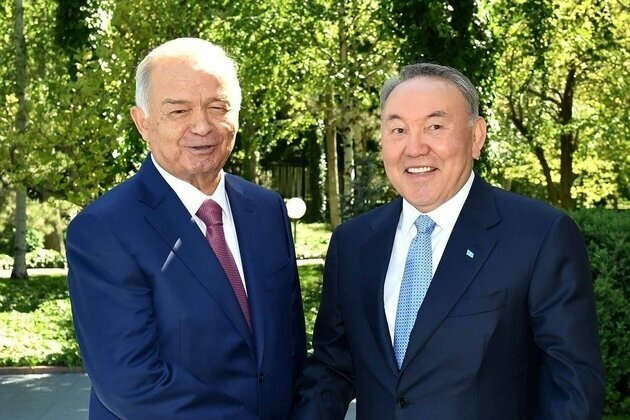
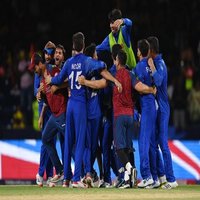


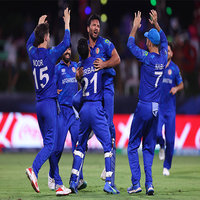

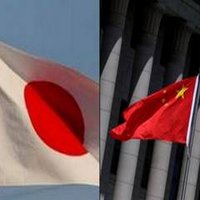




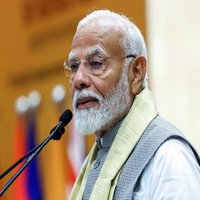
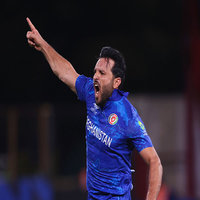
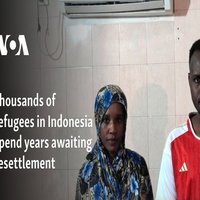

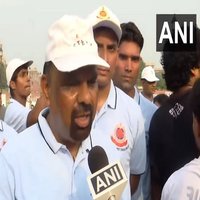


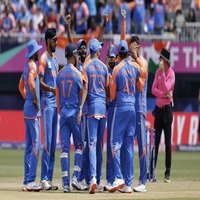

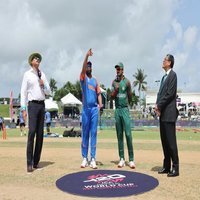

 36
36 







